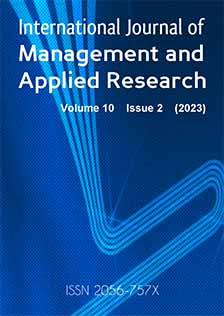Design Thinking and Co-creation in the Business Curriculum
Design Thinking and Co-creation in the Business Curriculum
Author(s): Gordon Fletcher, Maria KutarSubject(s): Business Economy / Management, Adult Education, Educational Psychology, Management and complex organizations, Pedagogy
Published by: New Millennium Discoveries Ltd
Keywords: Co-spontaneity; Uncertainty; Design Thinking; Meetings; Control; Higher Education;
Summary/Abstract: Business curriculum development is intrinsically linked to the rapidly changing business landscape. Navigating the complexities of this task demands a design thinking approach that places stakeholders at the centre, focusing on obtaining valuable insight while also openly sharing the broader implications of individual curricular decisions. This reflective paper examines the use of design thinking in developing the business curriculum. We explore the benefits of this approach for leadership of curriculum development and balancing the needs and wants of varied stakeholder groups. Key external factors, from government bodies to shifting economic climates, exert pressures that make all curriculum development a challenging endeavour. Institutions must concurrently accommodate this variety of stakeholder needs, the balancing of external pressures against internal expectations and alignment with internal and external pedagogical standards. Successfully addressing these complexities requires a shift from traditional meeting and committee methods, which often yield suboptimal outcomes. Instead, a design thinking approach prioritises open stakeholder negotiation, employing visual tools to foster clear communication and negotiation and application of a shared vision. This approach also acknowledges the importance of developing graduates’ social capital, aiming not merely to secure jobs for graduates but to equip them with invaluable skills and networks for unforeseen challenges. Ultimately, a human-centric design thinking method is vital for addressing the multifaceted challenges of curriculum design in the face of a VUCA world. Institutions that embrace this philosophy position themselves to produce curricula that are both contextually relevant and future-oriented, ensuring continuous improvement and relevance in higher education.
Journal: International Journal of Management and Applied Research
- Issue Year: 10/2023
- Issue No: 2
- Page Range: 283-297
- Page Count: 15
- Language: English

